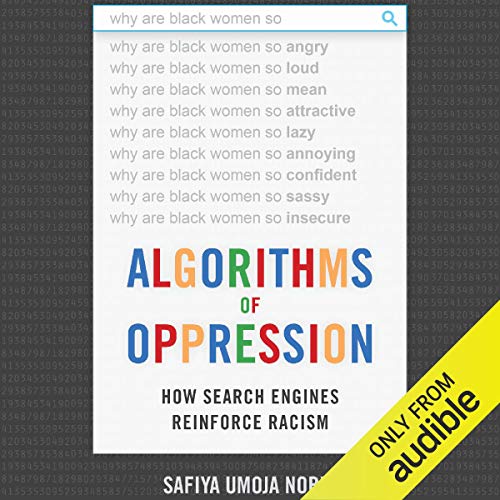
 Audible sample
Audible sample  Playing...
Playing... 
 Paused
Paused  Your audiobook is waiting!
Your audiobook is waiting!
Enjoy a free trial on us
$0.00$0.00
- Click above for unlimited listening to select audiobooks, Audible Originals, and podcasts.
- One credit a month to pick any title from our entire premium selection — yours to keep (you'll use your first credit now).
- You will get an email reminder before your trial ends.
- $14.95$14.95 a month after 30 days. Cancel online anytime.
Buy
-12% $17.46$17.46
Functional Programming in JavaScript: How to Improve Your Javascript Programs Using Functional Techniques
 Audible Audiobook
– Unabridged
Audible Audiobook
– Unabridged
Summary
Functional Programming in JavaScript teaches JavaScript developers functional techniques that will improve extensibility, modularity, reusability, testability, and performance. Through concrete examples and jargon-free explanations, this book teaches you how to apply functional programming to real-life development tasks.
About the Technology
In complex web applications, the low-level details of your JavaScript code can obscure the workings of the system as a whole. As a coding style, functional programming (FP) promotes loosely coupled relationships among the components of your application, making the big picture easier to design, communicate, and maintain.
About the Book
Functional Programming in JavaScript teaches you techniques to improve your web applications - their extensibility, modularity, reusability, and testability, as well as their performance. This easy-to-understand book uses concrete examples and clear explanations to show you how to use functional programming in real life. If you're new to functional programming, you'll appreciate this guide's many insightful comparisons to imperative or object-oriented programming that help you understand functional design. By the end, you'll think about application design in a fresh new way, and you may even grow to appreciate monads!
What's Inside
- High-value FP techniques for real-world uses
- Using FP where it makes the most sense
- Separating the logic of your system from implementation details
- FP-style error handling, testing, and debugging
- All code samples use JavaScript ES6 (ES 2015)
About the Listener
For developers with a solid grasp of JavaScript fundamentals and web application design.
About the Author
Luis Atencio is a software engineer and architect building enterprise applications in Java, PHP, and JavaScript.
Table of Contents
Part 1 Think Functionally
- Becoming functional
- Higher-order JavaScript
Part 2 Get Functional
- Few data structures, many operations
- Toward modular, reusable code
- Design patterns against complexity
Part 3 Enhancing Your Functional Skills
- Bulletproofing your code
- Functional optimizations
- Managing asynchronous events and data
PLEASE NOTE: When you purchase this title, the accompanying PDF will be available in your Audible Library along with the audio.
- Listening Length6 hours and 32 minutes
- Audible release dateNovember 19, 2018
- LanguageEnglish
- ASINB07KFPZLQ6
- VersionUnabridged
- Program TypeAudiobook
People who bought this also bought
- Python for Beginners: The Ultimate Guide to Learn Python, the Secrets of Machine Language Learning, Data Science Analysis and Data Analytics, Coding Language for Beginners.
 Audible Audiobook
Audible Audiobook - Audible Audiobook
- Audible Audiobook
- Audible Audiobook
- Audible Audiobook
Related to this topic
- Java from Zero: Learn Java Programming Fast for Beginners to Professionals: The Complete Guide with Code Examples and Exercises to Become a Professional
 Audible Audiobook
Audible Audiobook - Audible Audiobook
- Audible Audiobook
- YouTube Secrets: The Ultimate Guide to Growing Your Following and Making Money as a Video Influencer
 Audible Audiobook
Audible Audiobook - Audible Audiobook
Only from Audible
- Audible Audiobook
- Audible Audiobook
- Audible Audiobook
- Audible Audiobook
- Audible Audiobook
Product details
| Listening Length | 6 hours and 32 minutes |
|---|---|
| Author | Luis Atencio |
| Narrator | Chris Dunn |
| Audible.com Release Date | November 19, 2018 |
| Publisher | Manning Publications |
| Program Type | Audiobook |
| Version | Unabridged |
| Language | English |
| ASIN | B07KFPZLQ6 |
| Best Sellers Rank | #269,412 in Audible Books & Originals (See Top 100 in Audible Books & Originals) #130 in Functional Software Programming #395 in Programming & Software Development #404 in Java Programming |
Customer reviews
Customer Reviews, including Product Star Ratings help customers to learn more about the product and decide whether it is the right product for them.
To calculate the overall star rating and percentage breakdown by star, we don’t use a simple average. Instead, our system considers things like how recent a review is and if the reviewer bought the item on Amazon. It also analyzed reviews to verify trustworthiness.
Learn more how customers reviews work on Amazon-
Top reviews
Top reviews from the United States
There was a problem filtering reviews right now. Please try again later.
The text covers a wide range of topics in functional programming including side-effect free functions, first-class functions and higher-order functions, partial application, currying, and Monads including functional techniques to avoid nulls and error-checking. He discusses the ways in which functional programs can be more declarative and easier to reason about as well as how functional programming can improve unit and coverage testing and asynchronous code.
Atencio's writing style is clear. He presents many examples almost all of which are clear and highly focused on the point under discussion. Many examples even have imperative versions presented for comparison of the two different styles.
The text does have a much higher reliance on external libraries than I would like to see, especially where there are native versions of the functions being discussed (for example the map, filter, and reduce array operations). However, many features discussed are not available in native javascript, and in many cases, he does show sample implementations of these features natively (although he does still encourage the library use).
The text suffers from a number of typos and errors. These range from nearly harmless (saying orientated-orientated instead of object-orientated) to more severe errors in sample code (using the variable index instead of idx or defining a function as (p1,p2)=>p1.getAge() p2.getAge() when the difference of the two ages is desired). While there are many examples of these, I haven't seen any that are not cleared up by the surrounding text (discussing the return values of the age function) or that are too difficult to reason out (it is obvious that the idx variable is desired in the other example).
There is a heavy reliance on the additions to the javascript language made by ES6. While someone stuck working with ES5 will be able to get something useful out of the text, not all the examples will run without ES6.
Overall, I would recommend this book to anybody interested in using functional techniques in the javascript language. In fact, someone looking to learn about functional programming in general will get something out of this book.
(This review is based on an electronic copy of the book)
Disclaimer: I was provided with a free electronic copy of the book to review.
I loved Functional Programming in Scala (also published by Manning), so when I saw Functional Programming in JavaScript I snapped it up immediately. I am severely disappointed to see that Manning really dropped the ball on this one.
In no particular order:
- The code in the book is full of errors: typos, missing symbols, unhandled nulls, and so on. The author mixes syntaxes seemingly by accident (function vs. arrow, let vs. const vs. var, etc.).
- Atencio's writing is imprecise at best, and gives the impression that he has a poor understanding of functional programming at worst. For example (from page 60): "Instead of creating new data structure classes to meet specific needs, [functional programming] uses common ones like arrays and applies a number of coarse-grained, higher-order operations that are agnostic to the underlying representation of the data"; he seems to be mixing his understanding of Algebraic Data Types with JavaScript's built-in data structures, and in the process totally ignoring how data structures are actually implemented in functional languages (for example, see Okasaki's excellent Purely Functional Data Structures).
- Concepts are introduced and then mixed willy nilly: lenses are neither derived nor explained, Lodash and Ramda functions are mixed at will leading to totally unreadable code, imperative and functional and OO code is used interchangeably, and so on.
- The code is littered with incomplete and unexplained references to and code from other languages (Java, SQL, Haskell, Scala, F#, etc.), which adds nothing to the author's explanations, and seems to tell the reader "Hey look! I Googled how to write a function in Haskell! That's what functional programming is right? Right?".
- The author begins by talking about why Object Oriented code is bad, and then proceeds to use Lodash chains and ES6 classes throughout the book without explanation.
- Recursion is barely explained, and the author does not mention that V8 has yet to implement tail call optimization, making most recursive algorithms useless in practice (he does mention trampolining in a side bar, but fails to discuss it at all); He talks about referential transparency, then proceeds to throw runtime exceptions throughout his examples; Monads are barely derived or discussed: the author seems to have simply copy+pasted Functor, Maybe, and Either from a FantasyLand implementation, added a few annotations, and called it done.
Overall, this book was a real bummer. Manning should retract it, fix it, and re-release it. As is, it is not fit for publication.
For anyone seeking a better book, I highly recommend Braithwaite's JavaScript Allonge, followed by Chiusano's excellent Functional Programming in Scala.



















